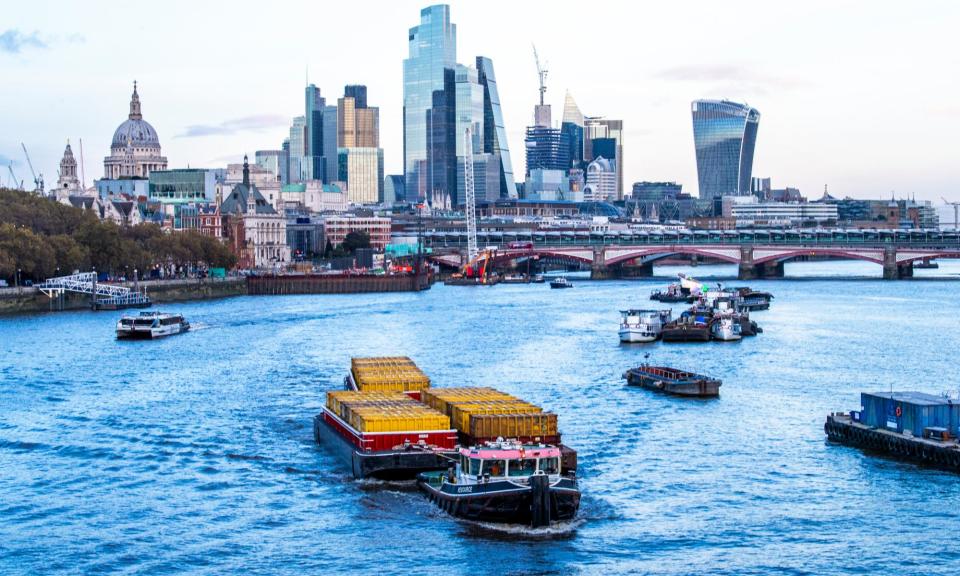Beware risks of voter giveaways to public finances, countries facing elections told

The International Monetary Fund has issued a strong warning to Britain and other countries facing elections this year to avoid voter giveaways that might pose risks to their public finances.
In its half-yearly fiscal monitor, the IMF said the reduction in national insurance contributions (NICs) announced by Jeremy Hunt in his budget last month may have already made cutting the UK’s national debt more difficult.
There is speculation Hunt might announce further tax cuts ahead of an autumn election but the fiscal monitor makes it clear this would be against the advice of IMF officials.
Related: Middle East conflict risks sharp rise in oil prices, says IMF
The Washington-based fund’s analysis showed the national debt as a share of the economy’s annual output – the debt-to-GDP ratio – rising steadily in every year between now and the end of the 2020s – from 92.9% in 2024 to 98% in 2029.
The IMF said the decision to spend £10bn on a 2% reduction in NICs was a “significant cut” and while in part funded by “well-conceived” tax increases “could worsen the debt trajectory in the medium term”.
Hunt said he was able to cut taxes without breaking his rules for the public finances because the independent Office for Budget Responsibility was pencilling in a small drop in the UK’s debt-to-GDP ratio in the fifth year of its forecast.
Responding to the IMF’s warning about pre-election tax cuts, the chancellor defended his decision to cut national insurance by 2% in last month’s budget.
“The IMF have recognised and given credit to the government for the difficult decisions we have taken to get the public finances in order,” he told reporters in Washington on Wednesday night. “It was possible to make significant tax cuts in a responsible way that doesn’t increase borrowing.”
The OBR calculates its debt figures in a slightly different way from the IMF but both organisations say there has been a marked deterioration as a result of the support provided by the government to the economy during the coronavirus pandemic and after Russia’s invasion of Ukraine.
The IMF also expects only a gradual improvement in the UK’s annual fiscal balance – the gap between public spending and state revenues. Having hit a record 13.1% of GDP in 2020, the deficit will fall to 4.6% of GDP this year but then decline only gently to 3.4% of GDP by 2029.
In a blog accompanying the fiscal monitor, fund officials said that, rather than contemplating tax cuts, most governments should instead be focused on rebuilding their public finances so that they were in a position to respond to further unexpected shocks.
“The record number of elections being held across the world in 2024 represents a salient risk with regard to fiscal consolidation prospects for the year,” the blog said.
According to the IMF, 88 economies or economic areas are holding elections this year – including Bangladesh, Brazil, the EU, India, Indonesia, Mexico, Pakistan, Russia, the UK and US – representing more than half of the world population and 55% of global GDP.
“Deficits in election years tend to exceed forecasts by 0.4 percentage points of GDP, compared with non-election years. In this great election year, governments should exercise fiscal restraint to preserve sound public finances,” the blog said.

 Yahoo Finance
Yahoo Finance 